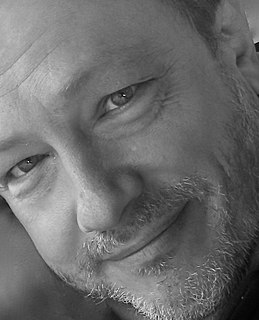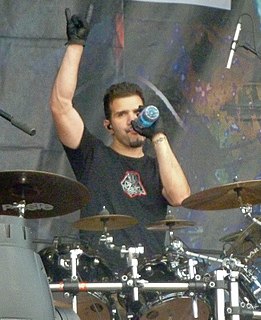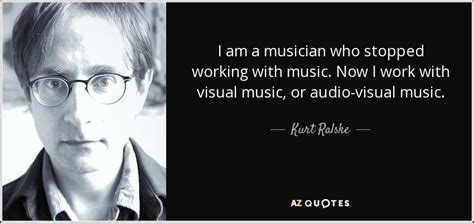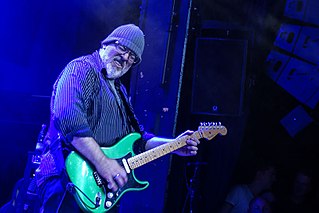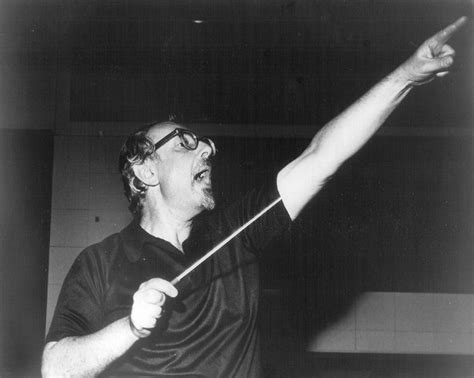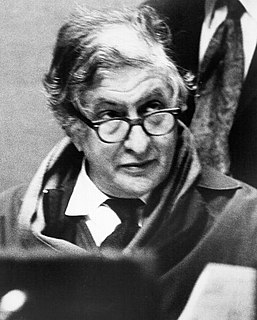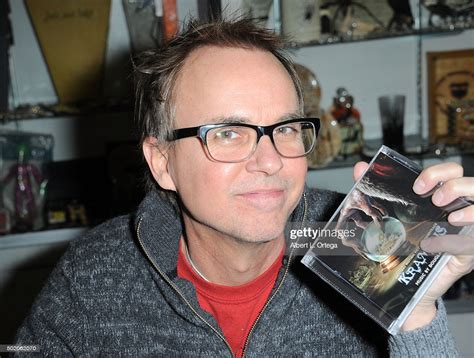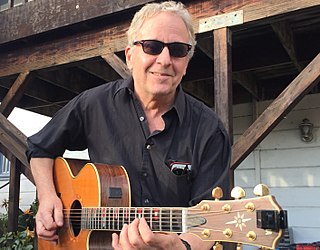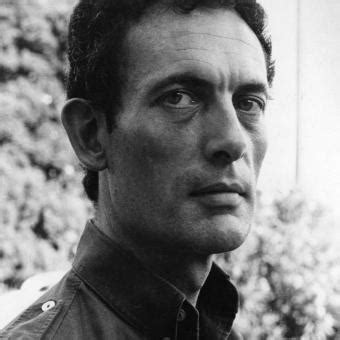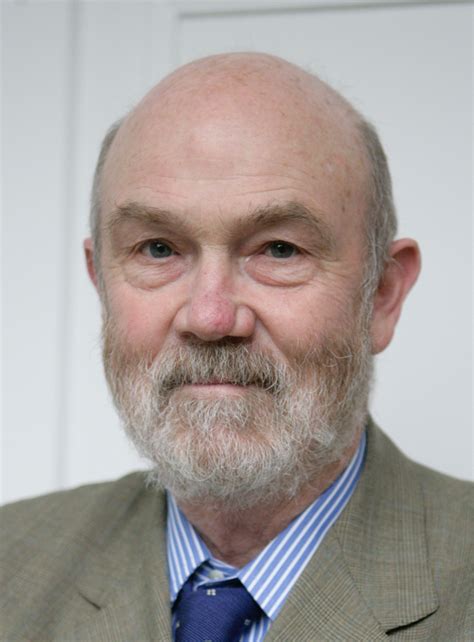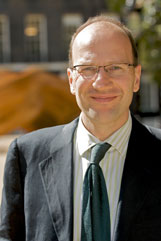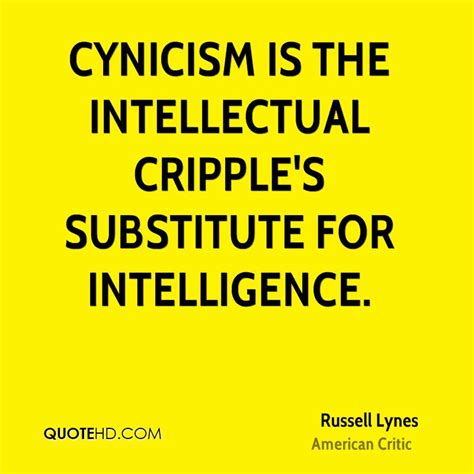Top 743 Composer Quotes & Sayings - Page 13
Explore popular Composer quotes.
Last updated on November 9, 2024.
With so much reading ahead of you, the temptation might be to speed up. But in fact it’s essential to slow down and read every word. Because one important thing that can be learned by reading slowly is the seemingly obvious but oddly underappreciated fact that language is the medium we use in much the same way a composer uses notes, the way a painter uses paint. I realize it may seem obvious, but it’s surprising how easily we lose sight of the fact that words are the raw material out of which literature is crafted.
The Violins waltzed. The Cellos and Basses provided accompaniment. The Violas mourned their fate, while the Concertmaster showed off. The Flutes did bird imitations…repeatedly, and the reed instruments had the good taste to admire my jacket. The Trumpets held a parade in honor of our great nation, while the French Horns waxed nostalgic about something or other. The Trombones had too much to drink. The Percussion beat the band, and the Tuba stayed home playing cards with his landlady, the Harp, taking sips of warm milk a blue little cup. “But the Composer is still dead.
My father was a very good amateur pianist, and he had a collection of books on technique. One of the things he had was a small volume of exercises by Rudolf Ganz, in which Ganz mentions the pedagogical work of the Swiss composer, Émile-Robert Blanchet, who wrote a ton of polyphonic exercises for one-hand. These exercises were a great help for finger independence, which I acquired early on. This might have given me somewhat of an edge, a facility to be able to knock any obstacle that was in my way.
The genius of a composer is found in the notes of his music; but analyzing the notes will not reveal his genius. The poet's greatness is contained in his words; yet the study of his words will not disclose his inspiration. God reveals himself in creation; but scrutinize creation as minutely as you wish, you will not find God, any more than you will find the soul through careful examination of your body.
We've always said we're a HEAVY METAL band. We've kinda branched out here and there - we've done a rap thing, we've done a rap-rock thing, we've done something with Angelo Belmonte, who's the primary composer of Twin Peaks. In fact, most of David Lynch's movies is Angelo. He did something with us and that was great. We've also acted, we've done an episode in Married with Children, which was awesome - so we're always looking to do things which you wouldn't expect.
I was a musician who began playing with computers, to see if they could make some tasks simpler. I developed some "tricks" or strategies for working with audio files, and then discovered that the same tricks could be applied to video files, or really, any type of data. Previously I made many different kinds of music. I did some work as a composer of film scores. In that role, my task was to create audio to match and deepen the visual. In my work now, the role is often reversed: I have to create images to match and deepen the audio.
I think, when you're a young composer, you're told constantly that what you're supposed to do is figure out what your voice is. "What is your thing supposed to sound like?" You know: "What's the thing you do," that everyone can recognizably tell from a long distance is you and then you're supposed to be in search of that marker and you're supposed to find it and you're supposed to live there for the rest of your life. And it seemed to me, from a young age, that was what I was encouraged to do. You find a sound and that's your sound! That's what you do.
Einstein's space is no closer to reality than Van Gogh's sky . The glory of science is not in a truth more absolute than the truth of Bach or Tolstoy, but in the act of creation itself. The scientist's discoveries impose his own order on chaos, as the composer or painter imposes his; an order that always refers to limited aspects of reality, and is based on the observer's frame of reference, which differs from period to period as a Rembrant nude differs from a nude by Manet.
A few Disney TV composers had me pinch-hit writing some scoring cues to picture. Disney tapped me to be the composer for the underscore and song producer for this new show called "Phineas and Ferb."There is nothing like a successful animated show to get your chops up. You have to do every style - action, adventure, romantic, suspense, spy, poignant, rock, funk, big band - delivered on a deadline.
Three of tonights performers are members of the group Return To One, whose album Hopes and Dreams I heard for the first time a couple of weeks ago. Blown away by the album, I called Nathan Hubbard, the drummer and composer for the group, and with whom I've played on a couple of Trummerflora-related occasions, and asked him to round up several of his Return To One cohorts for tonight's show. I can't recommend their album highly enough; please pick up a copy.
Seen from the point of view of the composer, the most nonsensical practice is that of casting people in musicals who are unable to sing. No one would cast a dancing part with someone who cannot dance sufficiently to come up to professional standards. The same is true of acting. But when it comes to singing, more often than not it is amateur night. . . . Either musicals should be written for specified performers in the first place, or they should be cast with people who are adequate to its dancing, acting and singing demands.
Virgil Thomson, the great classical music critic, who was also a composer, but said that criticism was the only antidote he knew to pay publicity. Critics at their best are independent voices people take seriously their responsibility to see as many things as they can see, put them in the widest possible perspective, educate their readers, I really do think of myself as a teacher. Newspapers that don't carry arts criticism at all while not fulfill this function. And probably their arts journalism will be deprived as a result.
As a composer I might class myself as a Neo-Romantic, inasmuch as I have always regarded music as a highly personal and emotional form of expression. I like to write music which takes its inspiration from poetry, art and nature. I do not care for purely decorative music. Although I am in sympathy with modern idioms, I abhor music which attempts nothing more than the illustration of a stylistic fad. And in using modern techniques, I have tried at all times to subjugate them to a larger idea or a grander human feeling.
I was playing in a band and was approached to score an independent film. I had never done it, but had written instrumental music, so I figured I could do it. Turns out I loved scoring the film, and took on another couple films before realizing that if I was to be an effective narrative composer, I should study the craft of composition. I stopped taking projects and got a degree in orchestral music composition, and followed that with film scoring studies. Near the end of my degree studies, I started taking on student films as a way to get back into film scoring.
Before writing a single note of music, and even before the spotting session, I find it best to sit down with the director and just listen to him or her talk about the film - what they're trying to say, what they want the audience to understand or believe, and a thousand other similar questions. The director has most likely been living with the film for years before a composer is attached, and so the director's inclinations, desires, and understanding of the film are paramount.
I'm an old guy, and I was protesting during the Vietnam War. We killed fifty Asians for every loyal American. Every artist worth a damn in this country was terribly opposed to that war, finally, when it became evident what a fiasco and meaningless butchery it was. We formed sort of a laser beam of protest. Every painter, every writer, every stand-up comedian, every composer, every novelist, every poet aimed in the same direction. Afterwards, the power of this incredible new weapon dissipated.
I've always loved opera; it never occurred to me that I would write a proper libretto. One of my closest friends is a composer, Paul Moravec, and a few years ago, Paul and I were at lunch, and I said to him, "you really have to write an opera." So, he says very casually to me, "I'll do it if you write the libretto." Well, little did I know that the within a couple of years we would end up getting a commission from the Santa Fe Opera to write an opera together, "The Letter," which turned out to be the most successful commissioned opera in the history of the Santa Fe Opera.
I was composing before I realised I was a composer. It came more or less naturally. There were a couple of old ladies lived next door to me, and I frequented their house more than I did my own, because it had all those marvellous things in that that old ladies do have. And they had a piano, and I used to play around with that; they showed me how to read music and I used to play to them.
One is seduced and battered in turn. The result is presumably wisdom. Wisdom! We are clinging to life like lizards. Why is it so difficult to assemble those things that really matter in life and to dwell among them only? I am referring to certain landscapes, persons, beasts, books, rooms, meteorological conditions, fruits. In fact, I insist on it. A letter is like a poem, it leaps into life and shows very clearly the marks, perhaps I should say thumbprints, of an unwilling or unready composer.
The composer Stravinsky had written a new piece with a difficult violin passage. After it had been in rehearsal for several weeks, the solo violinist came to Stravinsky and said he was sorry, he had tried his best, the passage was too difficult, no violinist could play it. Stravinsky said, 'I understand that. What I am after is the sound of someone trying to play it.'
Our life as consumers seems light years away from that of our grandparents. But you don't change human nature. Optimism, for me, is the belief that we can spread the opportunity for everyone to be fully human. Sustainability, like music, is an impulse to make sense of the world around us. It is core to our humanity. If you only like one composer, or think all the best music has already been written, you have reason for pessimism. If not, it is within us to have good reason for hope
Improvisation was the blood and bone of jazz, and in the classic, New Orleans jazz it was collective improvisation in which each performer, seemingly going his own melodic way, played in harmony, dissonance, or counterpoint with the improvisations of his colleagues. Quite unlike ragtime, which was written down in many cases by its composers and could be repeated note for note (if not expression for expression) by others, jazz was a performer's not a composer's art.


